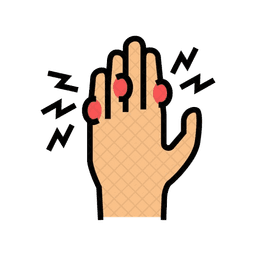Finger Joint Pain Treatments & Surgery
How Devasya Helps to Treat Finger Joint Pain?
Devasya Hospital specializes in treating finger joint pain. They have the best doctors for finger joint pain in Ahmedabad. You can get the best medical treatment depending on your condition. The qualified and experienced doctors provide the right treatment to the patients suffering from finger joint pain.
Devasya has the best facilities and state-of-the-art infrastructure to offer medical treatment for finger joint pain. The doctors suggest the right suitable surgical and non-surgical treatment to the patients and ensure speedy recovery too.
Resting the affected finger and using ice packs can also help reduce swelling. Immobilization with a splint or brace can provide support and minimize strain on the joint, further reducing swelling.
In some cases, when conservative measures are ineffective or if there's severe joint damage, surgery may be considered to address both pain and swelling, as discussed above. It's crucial to consult with a healthcare professional to diagnose the specific cause of finger joint pain and swelling and determine the most appropriate treatment plan for your situation.
FAQs
Finger joint pain refers to discomfort or pain experienced in the joints of the fingers. These joints are the areas where two or more bones in the fingers come together, allowing for movement. Finger joint pain can be caused by various factors, including arthritis, injuries, overuse, and more.
Sudden finger joint pain can be attributed to a variety of causes. Injuries, such as fractures or sprains, can lead to sudden pain. Inflammatory conditions like arthritis, such as rheumatoid arthritis or gout, can also cause sudden joint pain. Repetitive movements or overuse of the fingers may result in acute pain as well.
Joint pain in fingers can have various causes, including arthritis (osteoarthritis, rheumatoid arthritis), tendonitis, injuries (fractures, sprains), overuse or repetitive strain, infections, gout, carpal tunnel syndrome, and trigger finger. The specific cause may vary from person to person.
Common symptoms of finger joint pain include pain, swelling, stiffness, and a reduced range of motion in the affected finger joints. In some cases, deformities or nodules may develop, especially in conditions like rheumatoid arthritis.
Diagnosing finger joint pain typically involves a combination of a physical examination, medical history review, and diagnostic tests. Doctors may perform imaging tests such as X-rays, MRI, or ultrasound to assess the joint condition. Blood tests may be conducted to identify markers of inflammation or underlying diseases like rheumatoid arthritis.
The treatment of finger joint pain depends on the underlying cause and severity of the pain. Common treatment options include medications (pain relievers, anti-inflammatory drugs), physical therapy, rest, and immobilization with splints or braces, injections (corticosteroids or hyaluronic acid), surgery (for severe cases or joint damage), and lifestyle modifications (such as ergonomic changes or joint protection strategies). The choice of treatment is individualized and based on the specific diagnosis and the patient's needs. Consulting with a healthcare provider is crucial for proper evaluation and treatment planning.



